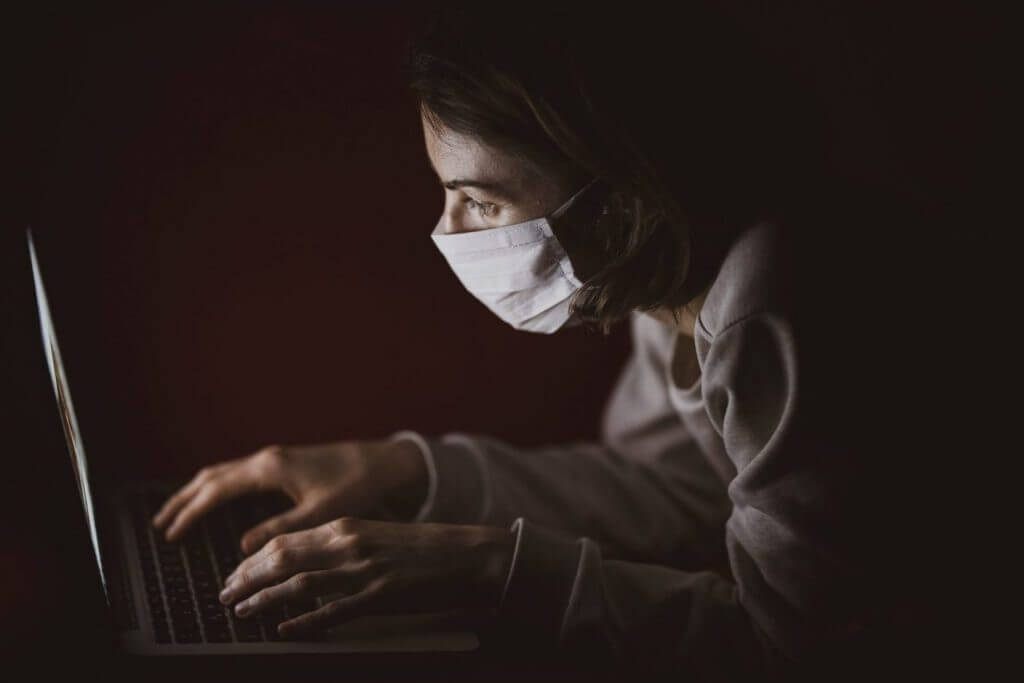Life seems precarious right now.
It is hard to determine which way to turn at every bend in the road. Should I suspend social isolation or continue to shelter in place? Can I do my own grocery shopping or continue to use a delivery service? Should I resume face-to-face dating or stay with virtual meetings? Can my social circle expand beyond 5 people or not?
Among the many negative side effects of the pandemic is the wide spread contagion of acting overly cautious. Remember the saying—analysis brings about paralysis? This seems to be today's mantra. Fear appears to be a consistent bi-product of dealing with this virus. It is seasoning every aspect of one's life; both the decisions one makes to prevent the spread of the disease and those decisions we make regarding our livelihood and future.
I never considered myself overly cautious. In fact, I rather prided my ability to look at situations without disproportionate sentiment. But this pandemic has put the screws to my resolve to make balanced decisions.
It is harder than ever to think rationally and not let anxiety drive my judgments.
Before the pandemic, a study done by Steven Levitt showed that one third of Americans agonized over making decisions. I can only imagine what the number might be now with our heightened sense of dread. Expecting that more people are grappling with the question "should I do this or that?", I would like to point out a finding from Levitt's research that might help people move on to a state of joy and contentment in life.
Most decisions we make are based in an either/or scenario. One of the choices is usually more attractive but comes with more risk and the other is less gnarly but very status quo. Thus, most of the decisions we make are based on the amount of risk we want to take. (Example: it is really attractive to go out on a date, but the risk of catching the virus is higher. Staying home is the safe choice, but is as life-giving as a root canal.) Which way should one go?
According to Levitt, those that take the risk and leave the status quo—those that say yes to the unknown or to the possible peril—actually report being happier than those who say no. (Didn't see that coming, did you?)
Why is this? The answer lies in facing what scares you.
Fear of something (catching the virus, not clicking on a date, being outright rejected) can be like a nightmare that haunts you. Fear creates insurmountable circumstances in your mind which can leave you thinking and feeling a type of paralysis to do anything. The inaction to take risk can cripple your spirit, leaving you with a sense of perpetual agony. You begin to think like Eeyore from Winnie the Pooh.
Those who take the risk to face what seems scary find out that their fear can be overcome; its not as large and ominous as they perceived. They learn that they can survive their worst fear and that they are better for facing that which terrified them.
Here's the moral to this post: being overly cautious is rarely in your best interest.
Nothing is so big and bad that it can't be tackled with rational thought and sound judgment. Here are a few questions that can guide you on your way from fear to action.
- Are there really only two ways to look at this situation?
- Which is worse, the risk or the regret of the action?
- What will life be like in 6 months if I don't try? If I do try?
- What question would the wisest person I know ask me to think about this situation?
If these questions don't get you to a decision, flip a coin as Steve Levitt suggests. But know this. Just keep in mind that people who say yes to the change or the risk are actually happier in 6 months than those who maintain the status quo.


